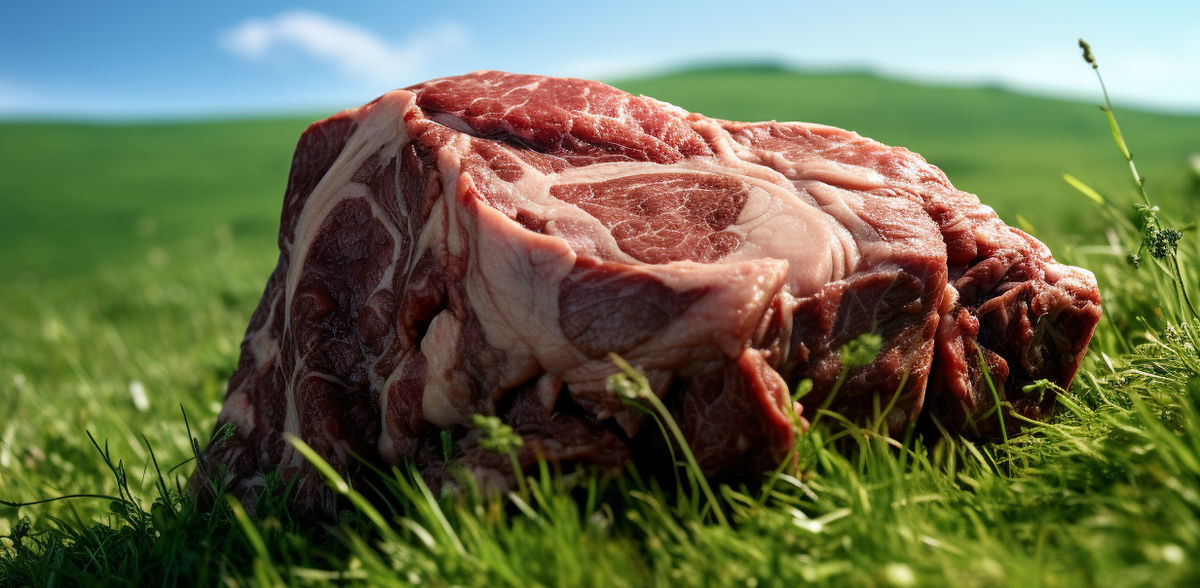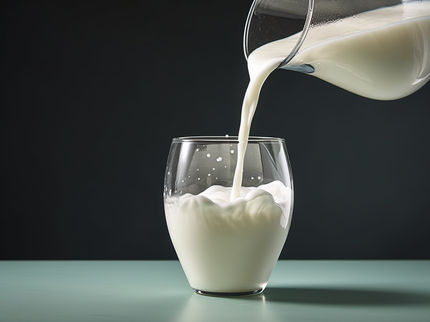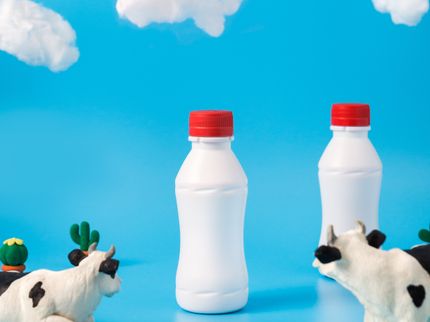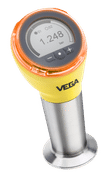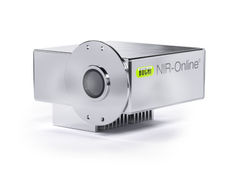Purdue researchers receive $118,000 to develop freeze-drying, meat validation and thermal imaging innovations
Trask Innovation Fund awards advance technologies for commercial use
Purdue University researchers with patent-pending innovations for the agriculture, medical and autonomous transportation industries have received funding to further develop their work and bring it to the marketplace.
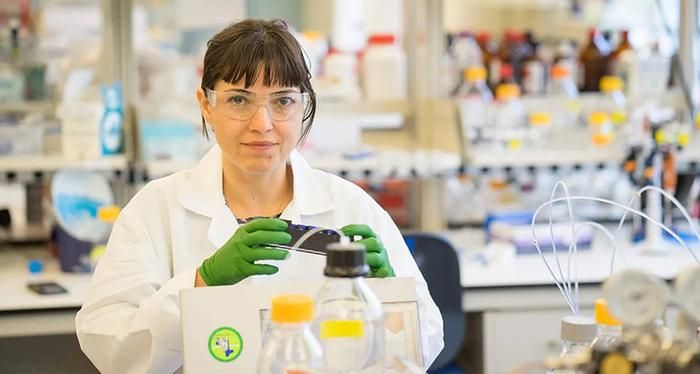
Christina Ferreira, metabolomics analyst in the Bindley Bioscience Center, is collaborating with researchers at the University of Sao Paulo in Brazil to develop a method to determine the type of feed provided to cattle. Ferreira has received funding from the Trask Innovation Fund to further develop the work and bring it to the marketplace
Purdue University photo/Vincent Walter
Researchers from the Bindley Bioscience Center and the College of Engineering have received more than $118,000 from the Trask Innovation Fund to make their work more attractive for commercial use.
The fund is managed by the Purdue Research Foundation Office of Technology Commercialization. It awards up to $50,000 for short-term projects that enhance the commercial value of intellectual property. The application deadline for the next round of funding is Sept. 22.
The spring 2023 Trask Innovation Fund recipients, their projects and award amounts are:
- Alina Alexeenko, College of Engineering, “Mobile Modular Demo Unit of Tunable RF Heating for Biologics Processing,” $25,000
- Christina Ferreira, Bindley Bioscience Center, “Muscle Biomarkers to Discriminate Characteristics of the Meat,” $43,600.
- Zubin Jacob, College of Engineering, “VGA Interface for High-Speed Thermal Imager at Room Temperature,” $50,000.
Freeze-drying pharmaceuticals
Alexeenko and her collaborators are using microwaves to make lyophilization, or freeze-drying, faster and more cost-effective in the transportation and storage of vaccines, injectable drug products and reagents for molecular diagnostics. The innovation could expand the use of the process and increase the availability of vaccines and biopharmaceuticals with a long shelf life not requiring frozen storage. Alexeenko is co-founder and co-director of LyoHUB, a university-industry center that improves freeze-drying technology to make food, pharmaceuticals and biotech products safer and more affordable.
“The Trask grant will allow us to design and build a mobile demonstration unit for RF heating for lyophilization that could be transported to potential industry users for on-site testing,” Alexeenko said. “Our goal is working with our commercial partner LyoWave Inc. to get early testing by industry on real products and de-risk the adoption of this new pharmaceutical manufacturing technology.”
Certifying grass-feed beef
Ferreira and her collaborators at the University of Sao Paulo in Brazil have developed a method to determine the type of feed provided to cattle. Grass-fed beef has been recognized as healthier than grain-fed beef, but there is no method to independently validate a grass-fed claim. The researchers’ patent-pending method allows for a fast, accurate approach to determine beef quality and meet certification requirements.
“The funds will create a prototype of a system that can certify meat quality inside a large meat plant without sample preparation within a few seconds. The system makes it possible to determine if cattle have been grass- or grain-fed and if the meat is tender,” Ferreira said. “The team, which will include graduate students from Purdue’s Department of Animal Sciences and Weldon School of Biomedical Engineering, will be able to collect valuable meat samples at the Boilermaker Butcher Block to test the prototype.”
Thermal imaging for autonomous navigation
Jacob and his research team are building a “thermal voyager,” the world’s first autonomous navigation agent that exploits ambient heat radiation signals for perception. Intelligent machines must perceive their environment and make real-time decisions for a range of tasks. However, conventional sensors provide little visibility in the nighttime and under harsh conditions like smoke or fog. Infrared radiation detectors work during the night as well as in low-visibility conditions, but these sensors do not have the size, weight, power and speed requirements needed for autonomous navigation.
“The next-generation, patent-pending detectors developed by my team have the potential for disruptive impact in the thermal imaging market,” Jacob said. “The Trask award will provide the crucial funding necessary to develop infrared thermal sensors to be mounted on the thermal voyager.”
Navigating the valley of death
Abhijit Karve, the Office of Technology Commercialization’s director of business development, said the Trask Innovation Fund awards strengthen a researcher’s ability to move research past the “valley of death.”
“The path to deliver an academic discovery to the marketplace can take a long time to travel because of the many challenges involved,” Karve said. “The Trask Innovation Fund complements other Purdue Innovates resources to assist innovators in developing products viable for industry commercialization. Trask Innovation Fund awards have been used for additional validation for these researchers’ work, including developing prototypes, conducting tests and generating data.”
Alexeenko’s, Ferreira’s and Jacob’s innovations, and other innovations created by Purdue researchers across all academic disciplines and campuses, are available for further development and licensing. Contact otcip@prf.org for more information.
